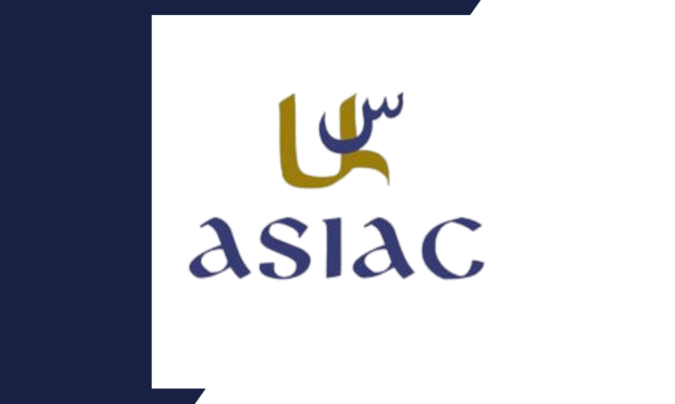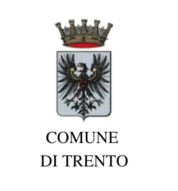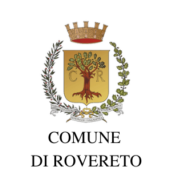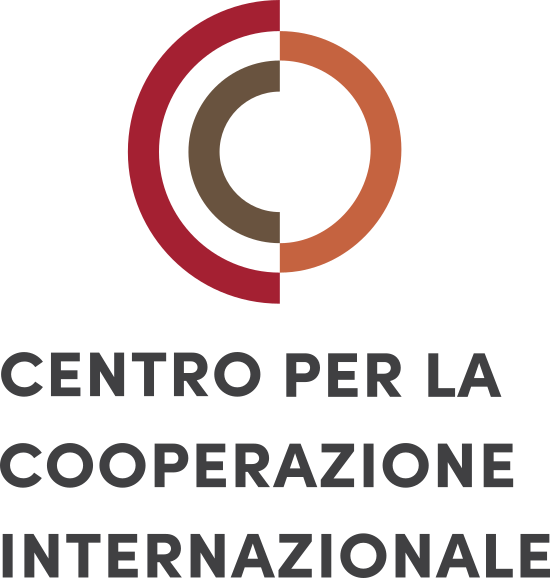PROGRAMMA:
MONDAY 25 October
9.00 Registration
9.30 Opening of the conference
Aldo Ferrari, Ca’ Foscari University of Venice, President of ASIAC
Antonello Biagini, Rettore UNITELMA Sapienza and President of Fondazione Roma Sapienza
Philological and linguistic insights into the Caucasus – 9.45
Chair: Vittorio S. Tomelleri & Elisabetta Ragagnin
Velizar Sadovski, Austrian Academy of Science, Armenian Personal Names of Iranian Origin as a Source for Indo-Iranian and Indo-European Phraseology and Dichtersprache Gilles Authier, École Pratique des Hautes Études, Linguistic diversity in East Caucasian: on the renewal of verbal forms
Paolo Ognibene, University of Bologna, Remarks on Ethnic Diversity within Herodotean Scythia and in the Lands North of the Caucasus
Andriy Danylenko, Pace University, From ‘Great’ to ‘Black’: The Naming of the Black Sea in the Turkish and Arab-Muslim Traditions
Coffee break 11.15
Formal linguistic approaches – 11.30
Chair: Gilles Authier & Viacheslav Chirikba
Gulshen Sakhatova, University of Cyprus, Multi-valued units in Turkmen and Kazakh Revaz Sherozia & Natia Putkaradze, Shota Meskhia State Teaching University; Caucasus University, Phonemic Portrait of the Kartvelian linguistic Sub-systems. On the example of glotal stop /ʔ/
Gasangusen Sulajbanov & Nina Sumbatova, École Pratique des Hautes Études; Russian State University for the Humanities, Causative in Tsugni Dargwa
Silvie Strauss & Emine Şahingöz, Goethe University Frankfurt, Eastern Armenian and Ossetic – Two special cases of Differential Object Marking in the Caucasus
Nodar Ardoteli, Tbilisi State University, Towards the problem of borrowed compounds in the Georgian, Dido and Bezhita Languages
Lunch 13.00
Education, culture, and geopolitics in Central Asia and the South Caucasus – 14.00
Chair: Paolo Sorbello & Filippo Costa Buranelli
Irina Chernykh, Kazakh-German University, Educational Migration from, to and within Central Asia: Trends, Drivers, Life Strategies
Silvia Grandi, Sandy MacDonald, Aliya Tankibayeva, University of Bologna, University of Northampton, al-Farabi Kazakh National University, Cultural heritage and rural tourism in Kazakhstan
Tommaso Aguzzi & Talshyn Tokyzhanova, Tallin University of Technology,
Informality in Central Asia: A Literature Review
Coffee break 15.30
Conflict in the South Caucasus – 15.45
Chair: Giorgio Comai & Michele Brunelli
Cesare Figaris Barberis, The Graduate Institute of Geneva, Ideology and the Grip of Emotions: A Comparison of Post-Conflict Attitudes in Georgia and Azerbaijan
Beatrice Paris, Università di Modena e Reggio Emilia, The Nagorno-Karabakh conflict: hate speech in media and in testimonies
Daniel Pommier, Sapienza Università of Rome, The role of Azerbaijani diaspora in the 44-days war
End of session 17.15
Asiac Association Meeting (in Italian) 17.30
TUESDAY 26 October
Regionalism and Security in Central Asia – 9.30
Chair: Stefano Ravagnan & Gabriele Natalizia
Rustam Burnashev, Kazakh-German University, Michel Foucault’s concept of ‘dispositif of security’: Central Asian weak states
Filippo Costa Buranelli, University of St. Andrews, Regionalism or Order? Assessing the International Relations of Central Asia
Fabio Indeo, NATO Defense College Foundation, Reshaping Central Asia security architecture: old challenges, new partners?
Coffee break 11.00
Navigating a West-East nexus: Identity, ordering and agency in the South Caucasus – 11.15
Chair: Carlo Frappi & Paolo Sorbello
Laura Luciani, Ghent University, Re-thinking gender from the ‘shared neighbourhood’: EU interventions and feminist agency in Armenia
Louise Amoris, Ghent University and United Nations University – CRIS, Liminality and Armenia: a bridge between the EU and Russia?
Shota Kakabadze, Georgian Institut of Politics, Is the EU’s normative power still relevant in the Eastern Partnership? The case of Georgia’s political crisis
Veronika Pfeilschifter, University of Jena, Ideology, utopia and resilience – The new post- Soviet left in the South Caucasus
Lunch 12.45
History of alphabets and etymology 14.15
Chair: Paolo Ognibene & Elisabetta Ragagnin
Aleksey Andronov, St. Petersburg State University, Some details of Evgenij Polivanov’s contribution to creation of alphabets for the peoples of the USSR: Dungan and Kyrgyz Viacheslav Chirikba, Institute of Linguistics, Moscow, Soviet Policy of Romanization and Abkhaz Alphabets
Vittorio S. Tomelleri, University of Torino, On the latinisation of Ossetian viewed from inside and outside
Coffee break 15.45
Iranian and Armenian studies – 16.00
Chair: Velizar Sadovski & Anna Sirinian
Laura Massetti, University of Oxford, When Syrdon invented the fændyr: a “Nartic Hymn to Hermes”?
Davide Procaccino, University of Pisa, Ossetic funeral laments: an overview of their ritual, textual and linguistic features
Michele Salvatori, Liceo Scientifico “E. Medi”, Montegiorgio (FM), The Lord’s Prayer in Ossetian. Some remarks
Francesco Moratelli, University of Bologna, The “Righteous Among the Nations” for the Armenians: Their Stories and Context
Nairi Mercadanti, University of Teramo, Nerkaght and the concept of homeland. The Armenian community in Beirut and the repatriation movement 1946-1948
End of session 17.30
WEDNESDAY 27 October
Democracy in decline in Eurasia. Disentangling its causes and consequences
[in presence only] – 8.45
Chair: Andrea Carteny
Participants: Gabriele Natalizia, Carlo Frappi, Elena Tosti Di Stefano, Mara Morini
Sociolinguistics and communication – 9.45
Chair: Daniele Artoni & Vittorio S. Tomelleri
Tamari Lomtadze & Irakli Tskhvediani, Akaki Tsereteli State University, The Influence of Englishization and Russification on the Georgian Linguistic Standard
Tamar Guchua, Akaki Tsereteli State University, Performatives within the Framework of the Ethnography of Communication: A Case of Georgian
Irine Chachanidze, Akaki Tsereteli State University, Assessing the phenomena of Diglossia in the City of Kutaisi: Sociolinguistic Studies of Non-Georgian Population
Coffee break 11.00
History and material culture in the Caucasus and Central Asia – 11.15
Chair: Aldo Ferrari & Fabio L. Grassi
Davit Merkviladze, Independent Researcher, Arcangelo Lamberti, an Italian Missionary
– Activity in Georgia and his Work the Sacred Colchis
Michele Brunelli, University of Bergamo, Give me 4 million gold scudi and I will restore Constantinople to Christianity”. Discourse on the present state of the Turk and ways of waging a real war on him. A 1585 war plan
Stefan Williamson-Fa, University of Birmingham, Husayn’s Flag Will Never Fall: Ritual Resilience Amongst Shi‘i Muslims in the Caucasus
Dinara Dubrovskaya, Russian Academy of Science, The Xinjiang Sino-Anglo-Russian Ili Crisis of 1781–1881 According to Rare Russian Archival Sources
Ana Cheishvili, École des hautes études en sciences sociales, Iconographic heritage of the Caucasus: the photographic collections of Baron de Baye
Lunch 13.00
Foreign policies, cooperation and myths – 14.30
Chair: Carlo Frappi & Paolo Sorbello
Frank Maracchione, University of Sheffiled, Multivectoral? A quantitative analysis of Uzbek foreign policy communication in the 21st century
Marco Alvi & Leonardo Zanatta, University of Bologna, Corvinus University of Budapest, The role of Syrian mercenaries in the current Turkish foreign policy: a view from the Regional Security Complex Theory
Giorgio Cella, NATO Defense College Foundation, Between rivalry and cooperation, Russia and Turkey in the light of the conflict in Nagorno Karabakh. The Caucasus and its disputed future
Fabio L. Grassi, Sapienza University, Between pride and humilation: Caucasian Diaspora and the myth of Circassian beauty
Coffee break 16.00
Connectivity in the Caucasus through Georgia after the 2020 Karabakh War – 16.15
Chair: Andrea Carteny & Fabrizio Vielmini
Archil Sikharulidze, Tbilisi State University, Georgia’s dilemma between geopolitics and economy
Zalina Plieva & Zhanna Tarkhanova, State University “K.L. Khetagurov, The role and Potential of North Ossetia (NOA) as a Transport Hub in the Greater Caucasus Region
Fabrizio Vielmini, Webster University in Tashkent, South Ossetia (SO) as the Missing Link of the North-South connection Axis
Eugenia Fabbri, University of Bologna, Energy crisis in Abkhazia: fuel for annexation?
End of session 17.45










